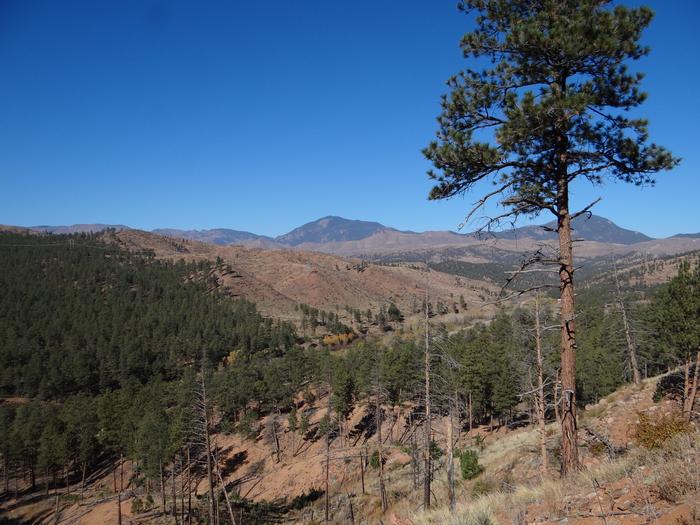Lyda Hill Philanthropies has donated $290,000 to Cary Institute of Ecosystem Studies for the Western Fire & Forest Resilience Collaborative. The two-year grant will help to engage a research team within the Collaborative that is focused on wildfire-related challenges and solutions in Colorado, where Lyda Hill has deep family ties.

Credit: Photo courtesy of Jennifer Balch
Lyda Hill Philanthropies has donated $290,000 to Cary Institute of Ecosystem Studies for the Western Fire & Forest Resilience Collaborative. The two-year grant will help to engage a research team within the Collaborative that is focused on wildfire-related challenges and solutions in Colorado, where Lyda Hill has deep family ties.
Led by Winslow Hansen at Cary Institute and launched with seed funding from the Gordon and Betty Moore Foundation, the Western Fire & Forest Resilience Collaborative joins together multidisciplinary scientists with decision makers to develop and implement bold, science-based solutions to the fire crisis.
“The fire challenge is vast and complex, and the Western Fire & Forest Resilience Collaborative has a unique role to play in Colorado and across the Western US,” says Matthew Crommett from Lyda Hill Philanthropies.
Across the Western US, climate change and a legacy of fire suppression have led to larger, more severe, and more frequent fires — with devastating consequences for people, natural resources, and the climate. Colorado is no exception. More than half of the state’s 20 largest fires in history have occurred since 2016, and more than 1 million Coloradans live in areas with moderate to very high risk of wildfire.
As record-breaking fires become the new normal, fire and forest management strategies need to adapt to keep pace. Leveraging fieldwork, remote sensing via satellites, and state-of-the-art modeling, and guided by decision makers in the fire community, the Western Fire & Forest Resilience Collaborative will provide a clearer understanding of the future of forests and fire, and pilot new fire management strategies and policies.
“We are so appreciative of this grant from Lyda Hill Philanthropies,” said Hansen. “Their support allows us to engage more deeply with decision makers in Colorado to understand how their forests are changing today with increasing fire, and how we might steward them to live more sustainably with fire over the coming seasons, years, and decades.”
The funding comes at a critical time. Although the federal government is investing billions of dollars to reduce fire severity using treatments like thinning and prescribed burns, these treatments will only cover a small percentage of forest. The Collaborative’s work will reveal where and how to strategically place these treatments to maximize return on investment — minimizing damaging fires and maintaining resilient forests.
The Collaborative’s predictive models will make it possible to test novel and scaled-up management strategies, helping to ensure that practitioners can leverage the best science to invest in practices that will shift the balance of wildfire from devastating to sustainable.
Learn more about the Western Fire & Forest Resilience Collaborative in this overview video.
Lyda Hill Philanthropies encompasses the charitable giving for founder Lyda Hill and includes her foundation and personal philanthropy. The organization is committed to funding transformational advances in science and nature, empowering nonprofit organizations and improving the Texas and Colorado communities. Because Miss Hill has a fervent belief that “science is the answer” to many of life’s most challenging issues, she has chosen to donate the entirety of her estate to philanthropy and scientific research.
Cary Institute of Ecosystem Studies is an independent nonprofit center for environmental research. Since 1983, our scientists have been investigating the complex interactions that govern the natural world and the impacts of climate change on these systems. Our findings lead to more effective resource management, policy actions, and environmental literacy. Staff are global experts in the ecology of: cities, disease, forests, and freshwater.



